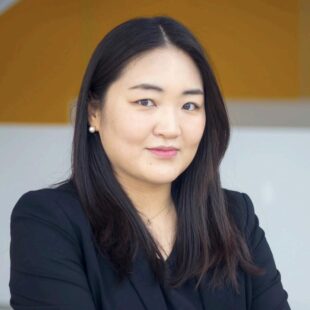SueYeon Chung
Faculty, Kempner Institute for the Study of Natural and Artificial Intelligence, Harvard University
Assistant Professor of Physics and of Applied Math

Contact Information
Areas I Research:
About
SueYeon Chung is an Institute Investigator at the Kempner Institute and an Assistant Professor in the Department of Physics at Harvard University. She is also a faculty member in the Center for Brain Science and holds a joint appointment in Applied Mathematics within the School of Engineering and Applied Sciences. Before joining Harvard, she was an Assistant Professor in the Center for Neural Science at NYU with a joint appointment in the Center for Computational Neuroscience at the Flatiron Institute, a research division of the Simons Foundation. She previously served as a Postdoctoral Fellow at the Center for Theoretical Neuroscience at Columbia University and as a BCS Fellow in Computation at MIT. She earned her Ph.D. in Applied Physics from Harvard University and her B.A. in Mathematics and Physics from Cornell University.
Dr. Chung’s work has been recognized by several awards, including the Klingenstein-Simons Fellowship Award in Neuroscience and the Sloan Research Fellowship, and her work is supported by the NIH BRAIN Initiative and Samsung Electronics. Her research interests lie at the intersection of statistical physics, neuroscience, and machine learning, with a particular focus on understanding and interpreting neural computation in biological and artificial neural networks through methods from neural network theory, statistical physics, and high-dimensional statistics.
Research Focus
Dr. Chung’s research explores the fundamental principles of neural computation in biological and artificial neural networks. Her work integrates ideas from neuroscience, machine learning, and statistical physics to understand how neural systems encode, transform, and process information. She develops theoretical frameworks to model the geometry and dynamics of neural population activity, linking emergent structures in high-dimensional systems to the computations they support. In parallel, she builds neural network models with biologically inspired architectures and learning rules, using them both as tools for neuroscience and as a path to more interpretable and efficient AI.
By connecting phenomena across scales, from individual neurons to population-level representations and emergent cognitive functions, Dr. Chung’s group seeks to uncover shared principles between brain function and artificial intelligence. This interdisciplinary approach not only deepens our understanding of neural computation but also informs the design of AI systems that are robust, reliable, and inspired by the brain’s strategies.



